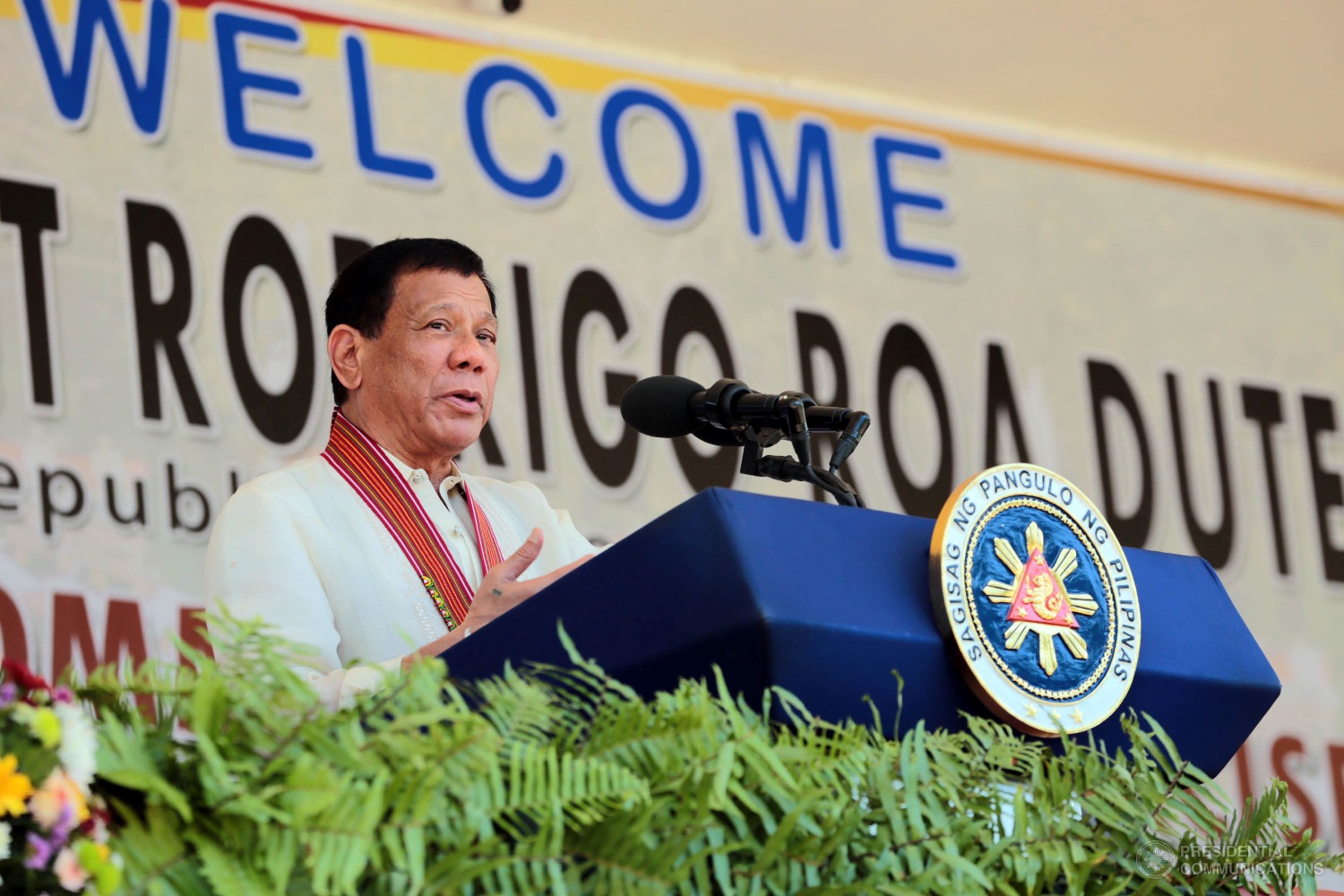Breaking
Chinese Foreign Ministry: Duterte to attend next month’s Belt & Road Forum

Philippine President Rodrigo Duterte is set to return to China next month upon invitation of Chinese President Xi Jinping to attend the Belt and Road Forum for International Cooperation. (Photo: ROBINSON NIÑAL JR./Presidential Photo)
BEIJING, April 20—Philippine President Rodrigo Duterte is set to return to China next month upon invitation of Chinese President Xi Jinping to attend the Belt and Road Forum for International Cooperation.
Chinese Foreign Minister Wang Yi has confirmed that President Duterte is one of the 28 state and government leaders who will participate in the Forum set to be held on May 14 and 15 in Beijing.
According to the top Chinese Foreign Ministry official, President Duterte will join fellow leaders from Association of Southeast Asian Nation (ASEAN) who already confirmed attendance in the two-day forum which President Xi will host.
They are Indonesian President Joko Widodo, Myanmar State Counselor Aung San Suu Kyi, Malaysian Prime Minister Najib Razak, Cambodian Prime Minister Hun Sen, Lao President Bounnhang Vorachit, and Vietnamese President Tran Dai Quang.
In October last year, President Duterte made his first four-day visit in China, a move that revived the Philippines-China relation that was affected by the South China Sea dispute.
President Duterte’s trip has also resulted in USD 24 billion worth of investments pledges and infrastructure projects.
Last March, Wang said President Duterte’s appropriate handling of the Southeast China Sea will benefit not only the people of the Philippines but the entire Asian region.
He said since President Duterte visited Beijing last year, over 1,000 Chinese tourist groups have visited the Philippines and China has imported over 2,000 tons of tropical fruits from the country.
President Duterte’s attendance in the Belt & Road Forum is expected to improve further the Philippines and China’s bilateral trade which remains stable after volume trade reached USD 47.2 billion or a 3.3 percent increase from previous year.
Wang has announced that 28 heads of state and government including Russian President Vladimir Putin and Turkish President Recep Tayyip Erdogan will participate in the forum.
He said over 80 leaders of international organizations, 100 ministerial-level officials, as well as 1,200 delegates from various countries and regions will also attend the Belt and Road’s highest level of international forum.
Other government leaders who confirmed attendance include Presidents Doris Leuthard of Switzerland, Mauricio Macri of Argentina, Alexander Lukashenko of Belarus, Michelle Bachelet of Chile, Milos Zeman of Czech, Nursultan Nazarbeyev of Kazakhstan, Uhuru Kenyatta of Kenya, Recep Tayyif Erdogan of Turkey, and Shavkat Mirziyoyev of Uzbekstan.
The Prime Ministers include Hailemariam Dessalegn of Ethiopia, Voreqe Bainimarama of Fijian, Alexis Tsipras of Greece, Viktor Orban of Hungary, Paolo Gentiloni of Italy, Jargaltulga Erdenebat of Mongolia, Nawaz Sharif of Pakistan, Beata Szydlo of Poland, Aleksandar Vucic of Serbia, Mariano Rajoy of Spain and Ranil Wickremesinghe of Sri Lanka.
United Nations secretary-general Antonio Guterres, World Bank president Jim Yong Kim, and International Monetary Fund managing director Christine Lagarde will also grace the forum.
According to Wang, President Xi will attend the opening ceremony and will host a round table meeting that will brainstorm on policy and strategic development and interconnected development.
He said another “1+6” high level meeting will be held to discuss various topics including infrastructure, trade and economic cooperation, energy resources, financial cooperation, eco-environment, and people-to-people exchanges.
President Xi proposed the Belt and Road or One Belt, One Road Initiative in 2013 with the hope of re-establishing the Silk Road Economic Belt and 21st Century Maritime Silk Road in at least 65 countries in Asia, Europe and Africa.
Based on the Belt and Road Big Data Center of the State Information Center, China’s total value of trade with Belt and Road countries has reached USD 953.59 billion in 2016.
China has reportedly invested more than USD 50 billion in countries along the Belt and Road routes since 2013.
A total of 56 economic and trade cooperation zones have been built by Chinese businesses in 20 Belt and Road countries.





















